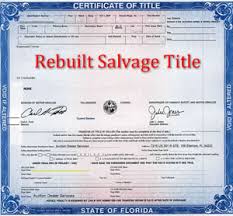Almost monthly, I receive an email, text message or phone call from someone, somewhere dealing with the fallout of being “caught” in a sin. Sometimes it’s the guilty party reaching out to me personally. Other times it’s the ones who have done the catching. In all cases, trust is broken, lives are damaged, hearts are hurting and the person on the other end of the phone needs help or a healthy dose of hope, stat.
I used to be surprised by the caller’s admission or heartbreaking tale. Given my personal understanding of the human heart, our propensity for trouble, and the staggering number of poor choices in our current culture – nothing really shocks me anymore. What actually surprises me more than anything is how others treat those who have fallen, especially in the church.

Years ago, driving home late one night, I glanced at my rear view mirror and saw a plume of white smoke off the side of the road I had just passed. I realized quickly that something must have happened in the 30 seconds since I drove by. Curiosity got the best of me and I turned around to find myself as the first person on the scene of a really bad accident. The car, driven by bikini-wearing college female, had gone off the side of the road and into a formidable tree. When I got to her, she was slumped over the steering wheel, moaning, badly injured. Windshield glass was all over the front seat. Music from her car radio was blaring. Smoke was pouring out from under her crumpled hood. It reminded me of a movie scene where you had mere seconds to get the person out of the vehicle before the car blew up. The whole moment was surreal and moving in slow motion. As I was trying to figure out what happened and how to help her, one smell was undeniable:
Alcohol.
She was driving drunk! How dare she!
I stopped helping her and instinctively began to interrogate her:
“Were you drinking?”, I asked.
“How could you drink and drive!? Don’t you know how dangerous this is?! Or that it’s illegal??”
She said nothing, just moaned.
I continued, “I hope you are happy with yourself. You could have killed someone! Or yourself! Or me!”
She ignored my litany of anger.
“You do realize you are going to jail, right?”
No response. Just more silence.
I would tell you the rest of our conversation except I can’t. It never happened.
Don’t get me wrong, the crash was real.
So was the girl, her bikini, the smoking car and her injuries.
But the conversation never happened.
How could it? She wasn’t in any condition to talk and I wasn’t sure if she had suffered life threatening injuries. My primary concern was to get her safely out of the car in case it blew up. (It didn’t)
I have thought about that crash and that girl several times over the last 30 years and wondered what happened to her. I trust she recovered and learned whatever lessons she needed to from that experience.
But her crash reminded me of another crash I heard about last week, when another reckless driver drove his life off the side of the road. He wasn’t in a physical car, just a metaphorical one. Instead of hitting a tree, he hit the reality of losing his marriage. Alcohol wasn’t his downfall, an affair was. The injuries he sustained were not physical – just emotional and mental and spiritual and social and financial and…threatening life as he knew it. His marital car is about to blow.
Two car wrecks. Two wrecked lives. Two different causes of their consequences.
If you were to ask the girl if she received help or support immediately following her wreck, she would tell you yes. Lots of it. After I arrived, three more cars stopped to help me. Followed by a couple of police officers, a firetruck and one ambulance. By the time I left the scene, after 1:00 am, she was in good hands and stable.
I asked the man how his church has responded to his wrecked life. His answer, though disappointing, was not surprising. Very few have reached out to him. His wife was triaged and has received a ton of support (as she should!)… but as for him, he’s been largely left to help himself out of the mangled mess.
There seems to be a big difference in how we treat those with physical injuries versus those who suffer from moral ones. When someone is physically injured, we run to their aid instantly, even if they were drunk driving. We don’t hold back assistance or support, even if their injuries were self-inflicted. Why?
If you’ve ever committed major league sins around minor league sinners, you know what I’m talking about. The following seems to get hurled your direction, post-haste:
- Judgment.
- Condemnation.
- Shame.
- Guilt.
- Ostracizing.
- Excommunication.
- Shunning.
- Gossip.
- Silence.
Why? Why do we run to help someone who falls physically but seemingly walk (or crawl) to help the one who fell morally? Do we value our skin over our soul? Our physical well-being over our emotional one?
The Apostle Paul addressed this very issue when writing to the church in Galatia. He addresses his letter to fellow believers and gives them explicit instructions on how to deal with someone who has driven their moral chariot off the road:
“Brothers and sisters, if someone is caught in a sin, you who live by the Spirit should restore that person gently. But watch yourselves, or you also may be tempted. Carry each other’s burdens, and in this way you will fulfill the law of Christ.” (Galatians 6:2-3)
What is your response when you see a stranger suffer a physical injury?
What is your response when you see a friend suffer a moral one?
Listen, the truth is – sometimes we drive our perfectly good vehicles off the road and into trees? Why?
Because we are “caught” in a sin.
That night, the girl drank too much beer. Another man might look at too much porn. The homeless Vet abuses too much heroin. The embezzler takes too much money. The glutton eats too much food. I’m not justifying their behavior or condoning their choices as much as I’m saying – these people need our help and support, just as much as those who have sustained a physical injury.
If we are willing to rush towards a physically injured stranger and offer assistance without judgment, why can’t we do the same for someone injured morally in our church?
Paul is reminding his church, those who live by the Spirit… that they need to do four things:
- Restore that person.
- Restore them gently.
- Watch themselves in the process.
- Carry each other’s burdens.
Did you see his reason why? Because doing THOSE four things “fulfills the law of Christ”.
The next time you hear of someone who has driven their moral car into a tree,
Call them.
Visit them.
Hug them.
Restore them.
And do it gently…..
And watch yourself in the process because your car could crash there too.






 When something expensive is broken and money is flowing, we are quick to throw the broken item away and simply buy a new one. But when something costly is broken and cash is low, we must figure out how to fix what we have. Unfortunately, as a “wealthy, first-world” country, we have been allowed to replace too many things for too long. In fact, in many ways – it’s actually easier and cheaper to buy something new.
When something expensive is broken and money is flowing, we are quick to throw the broken item away and simply buy a new one. But when something costly is broken and cash is low, we must figure out how to fix what we have. Unfortunately, as a “wealthy, first-world” country, we have been allowed to replace too many things for too long. In fact, in many ways – it’s actually easier and cheaper to buy something new.